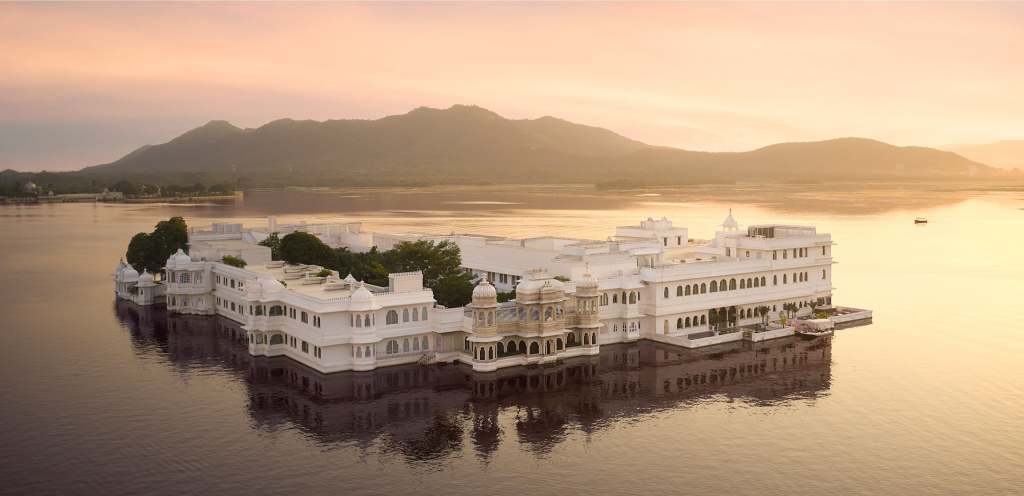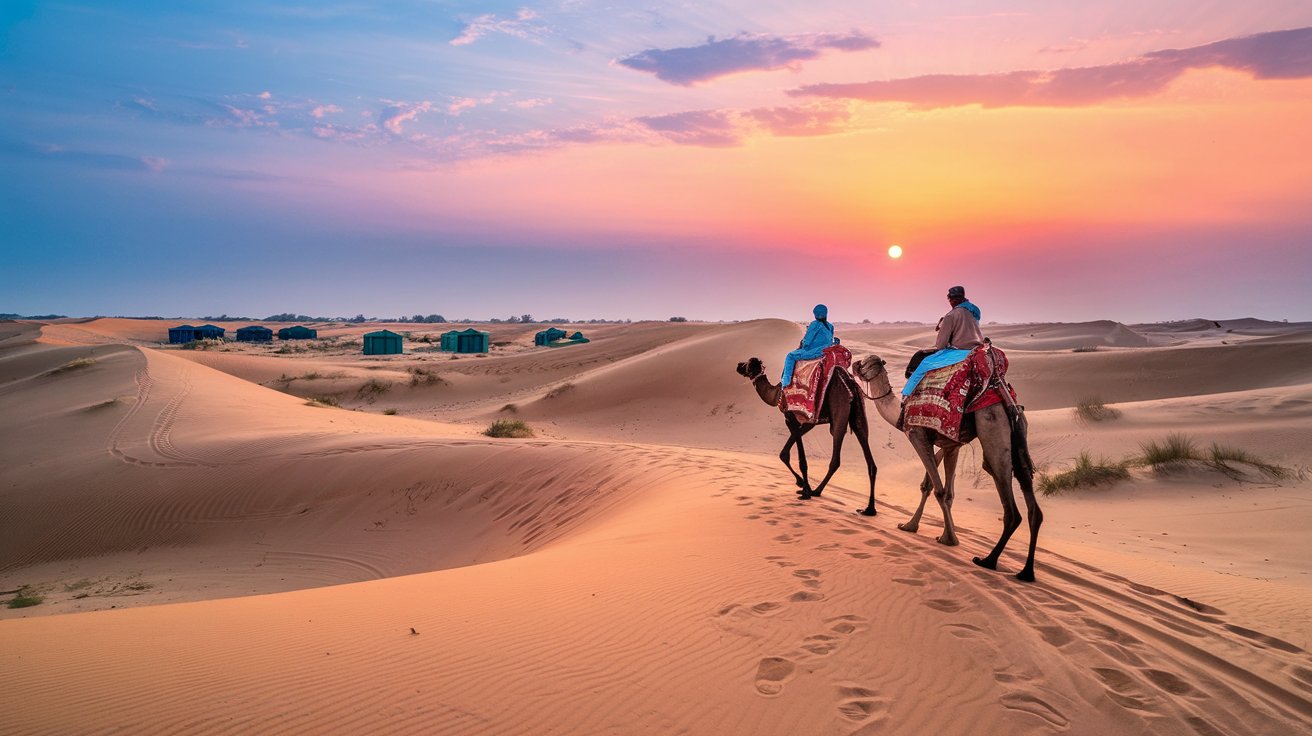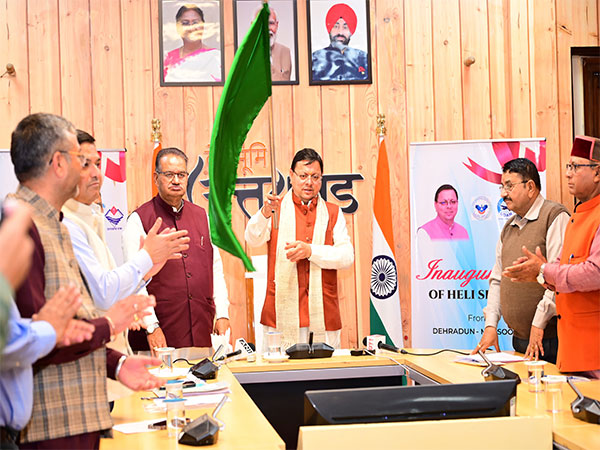Rajasthan is one of my top places to visit for eco-tourism. You might think, why didn’t I opt for the Himalayas or a more mountainous region? Well, Rajasthan offers something unique—its vast deserts, rich wildlife, and deep cultural roots make it a perfect place for eco-adventures that connect travelers with both nature and local communities.
This wasn’t just another trip; it was a step into nature’s wild, where human presence was rare and life existed in its purest form. It made me realize that eco-adventures in India’s wilderness are not just about exploring new places—they’re about connecting with nature in a way that helps protect it.
Exploring Rajasthan’s Desert Ecosystem
Rajasthan’s famous Thar Desert may seem like an endless sea of sand, but it’s teeming with life. I remember standing on top of the golden dunes during my first desert safari in Jaisalmer, the wind carrying grains of sand as far as the eye could see. Riding a camel through the Sam Sand Dunes at sunset, I was in awe of the serenity of the place. The eco-friendly camps we stayed in were powered by solar energy, and they focused on reducing waste—ensuring that the delicate desert ecosystem wasn’t harmed by tourism.
The fascinating thing about Rajasthan’s ecotourism is how well it strikes a balance between protecting the environment and helping visitors enjoy the desert’s raw beauty. In an environment as delicate as the desert, where even the slightest disturbance can have long-lasting consequences, these sustainable practices are crucial.
Ranthambore National Park: A Glimpse of the Majestic Bengal Tiger

Not far from the Thar Desert lies Ranthambore National Park, home to one of India’s largest populations of Bengal tigers. The park, with its rugged terrain and ancient ruins, is a haven for wildlife lovers. On my first safari through Ranthambore, I was fortunate enough to spot a tiger. It felt like time stood still as we watched the magnificent creature slowly emerge from the tall grass, its eyes scanning the horizon.
Beautiful in Ranthambore are not the animals you see is how the park carefully manages tourism to avoid disrupting the natural habitat of these majestic creatures. There are limited safaris, each with a strict count to limit disturbances, making an eco-friendly safari operator a prime choice here to support conservation efforts and yet behold the magic of these wild animals in their natural surroundings.
The Waterways of Rajasthan: An Unexpected Eco-Adventure

While most people associate Rajasthan with deserts, it’s also home to some incredible lakes and waterways. In Udaipur, often called the “City of Lakes,” I found myself taking a peaceful boat ride on Lake Pichola, surrounded by majestic palaces and the distant Aravalli hills. What makes Udaipur stand out is its efforts to keep the lakes clean through eco-friendly initiatives. Many boat operators now use solar-powered boats, and there’s a focus on minimizing pollution to preserve the natural beauty of these lakes.
The city’s eco-conscious approach to tourism not only enhances the visitor experience but also ensures that the lakes and the wildlife they support remain healthy and vibrant for generations to come.
Kerala’s Backwaters: A Contrast to Rajasthan’s Deserts

Of course, if we shift our focus from Rajasthan, India’s Kerala backwaters offer a completely different eco-adventure. Floating through the tranquil waters of Alleppey in a traditional houseboat, it’s hard to imagine a more peaceful way to connect with nature. Unlike the dry heat of Rajasthan, Kerala’s backwaters are lush, green, and full of life.
What I loved most about my trip to Kerala was the dedication to sustainable tourism. Nowadays, eco-friendly waste systems and solar panels are built into houseboat designs to protect the fragile backwater habitat. It’s an excellent illustration of how eco-tourism can thrive in a variety of settings across India, from the dry sands of Rajasthan to the lush seas of Kerala.
Why Rajasthan is a Perfect Destination for Eco-Tourism
You might still wonder, why Rajasthan? For me, it’s the perfect blend of rich culture and natural beauty. The desert may not seem like an obvious choice for eco-adventures, but it’s this very contrast that makes it so special. By opting for eco-friendly tours and staying in sustainable accommodations, I was able to experience the magic of Rajasthan while ensuring that my travels left a minimal impact on the environment.
Eco-tourism in Rajasthan doesn’t just benefit the environment; it also supports local communities. Many of the eco-friendly camps, safaris, and tours are run by locals, ensuring that tourism dollars go directly to the people who have lived in these regions for generations. This helps preserve their way of life and gives them the resources they need to continue protecting the land.
Conclusion: Embracing Eco-Friendly Travel in Rajasthan
Rajasthan, with its vibrant deserts, rich wildlife, and ancient culture, offers an incredible opportunity for eco-friendly travel. Whether you’re spotting Bengal tigers in Ranthambore or riding camels through the Thar Desert, the state’s commitment to sustainable tourism ensures that you can experience its beauty without causing harm. While the Himalayas and other mountain regions may seem like obvious choices for eco-adventures, Rajasthan’s unique landscape offers a different kind of connection with nature—one that’s equally enriching and unforgettable.
Know more: https://www.tripadvisor.in/Attractions-g297665-Activities-c61-t216-Rajasthan.html



 By
By

 By
By
















